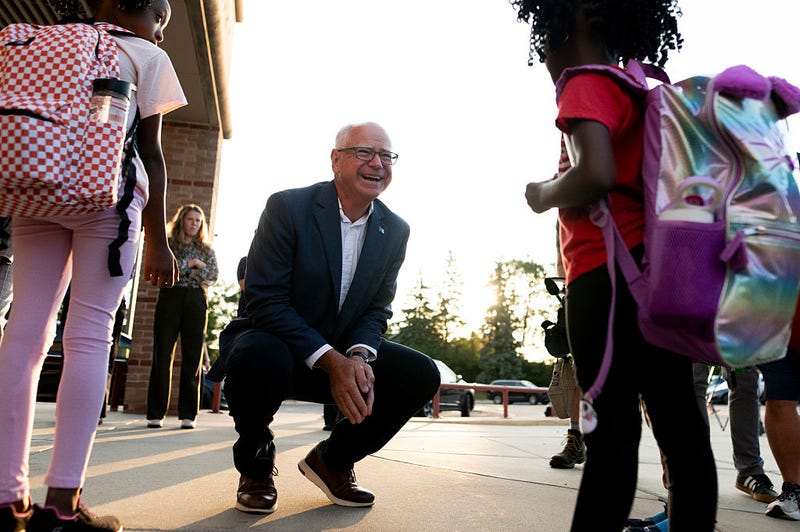
"The talks are ongoing, I remain open to a deal where we can come in and get something done," said Minnesota Governor Tim Walz.
That "something" is a special session to address gun control and it's still not clear yet whether or not Walz will even call one in the wake of the mass shooting at Annunciation church in Minneapolis.
There doesn't seem to be enough common ground between the Democrats and Republicans to get to a vote. Walz told reporters this week he admits it might be tough given the current make up of the legislature.
"Look, we're at 67-67, and neither side has 34 votes in the Senate, so it's going to take a compromise which shouldn't be that difficult," Walz said.
The governor adds that he was told by Republican leaders that they will never vote for gun control measures or a weapons ban.
Instead, Republican leaders are calling for more focus on school safty and offering more in the way of mental health resources.
But Walz says he'd like to see an up or down vote on one issue.
"I asked for a floor vote on high capacity magazines and assault weapons, and just let the members vote on it," Walz explained. "And if they believe that's a bad idea, which obviously they do, the Republican legislators believe it's a bad idea, then you can simply vote no."
A new KSTP/SurveyUSA poll this week is showing a majority of Minnesotans do support bans on those types of weapons. But unless the two sides can find common ground, hopes are beginning to fade it will get addressed in a special session this fall.
Republican Speaker of the House, Lisa Demuth (Cold Spring) said this week the governor is mischaracterizing their intentions, and has said there's no way to know if they would vote on an issue without an actual bill.
A bipartisan Gun Violence Prevention Working Group at the state capitol last week attempted to get some initial ideas on what the sides could agree on. That group had a bumpy go of it, with DFL Sen. Ron Latz, the chair of the working group, saying they've received a number of proposals, but the response hasn't been bipartisan.
"We didn't get anything from the Republican members of the State Senate save for one suggestion relating to medications," said Latz. "Some of those were mentioned at the hearing, but none of them were submitted as proposals or bill drafts or anything like that for us to even have on the agenda."
